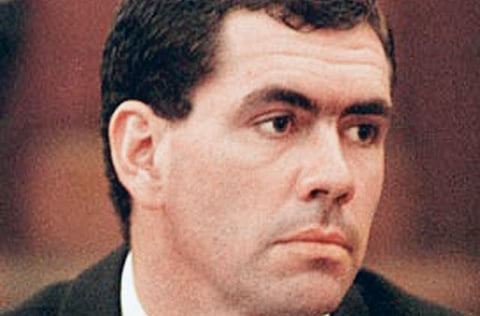Match-fixing : A decade after Cronje
Timeline of events match-fixing scandals proceeding Hansie's scandal

June 26, 2000: Cronje begs forgiveness for his involvement in illicit gambling deals after the first round of hearings of the King Commission closes. A former Commissioner of the Metropolitan Police, Sir Paul Condon, is appointed director of the ICC's anti-corruption investigation.
July 20, 2000: Indian income tax officials raid the homes of top cricket players and officials, including the then national coach Kapil Dev, former players Azharuddin, Ajay Jadeja, Nayan Mongia and Nikhil Chopra.
September 12, 2000: Kapil Dev steps down as coach of the Indian team as he faces a government inquiry into corruption.
October 11, 2000: The UCBSA imposes a life ban on Cronje.
October 31, 2000: Several players are named by bookmaker M.K. Gupta in the CBI report in India, among them Brian Lara, Dean Jones, Alec Stewart, Arjuna Ranatunga, Aravinda de Silva, Martin Crowe and Saleem Malek. The most damning indictment in the CBI report is of former captain Mohammad Azharuddin, who the report says confessed to fixing games with the help of colleagues Ajay Jadeja and Nayan Mongia. The CBI also says it has found no concrete evidence against Kapil Dev.
November 27, 2000: Azharuddin is found guilty of match-fixing, while Ajay Jadeja, Manoj Prabhakar, Ajay Sharma and former Indian team physio Ali Irani are found guilty of having links with bookies by the BCCI's anti-corruption commissioner.
December 5, 2000: India's cricketing authorities slap a life ban on Azharuddin, and Ajay Jadeja for five years for their role in match-fixing, confirming the interim bans imposed in November. Ajay Sharma is also banned from the game for life, while Manoj Prabhakar and the Indian team's former physio, Ali Irani, are barred from holding any official post in Indian cricket for five years. Jadeja's ban is overturned by the Delhi High Court in January 2003, saying there is no proof of his guilt.
December 10, 2000: Former West Indies captain Clive Lloyd is named as head of a three-member team to probe allegations of match-fixing in tournaments organised in Sharjah.
June 22, 2002: Pakistan's Bhandari Commission, instituted primarily to investigate the Pakistan-Bangladesh match in the 1999 World Cup, releases its report with little credible evidence to incriminate players.
August 17, 2004: Kenya's former captain, Maurice Odumbe, is banned for five years by the Kenyan Cricket Association after being found guilty of receiving money from bookmakers on several occasions.
May 13, 2008: West Indies player Marlon Samuels is banned for two years for allegedly passing on match-related information to an Indian bookie during West Indies' one-day series in India in 2007.
August 10, 2009: The ICC says that its Anti-Corruption and Security Unit (ACSU), on investigation, found "no substance" and "no evidence" to support suggestions that Pakistan players had contact with Indian bookies during their Sri Lanka tour.
August 18, 2009: The Australian team management files a report with the ACSU after one of their players says he was approached by a man suspected of links to illegal bookmaking, after Australia's defeat to England in the Lord's Ashes Test.
May 15, 2010: Essex cricket players Danish Kaneria and Mervyn Westfield are arrested following an investigation into betting irregularities but are not charged.
May 26, 2010: The Bangladesh captain confirms he received an approach, believed to be in March 2008, from an unknown person who Shakib believed wanted him to manipulate the result of a one-day international against Ireland.



